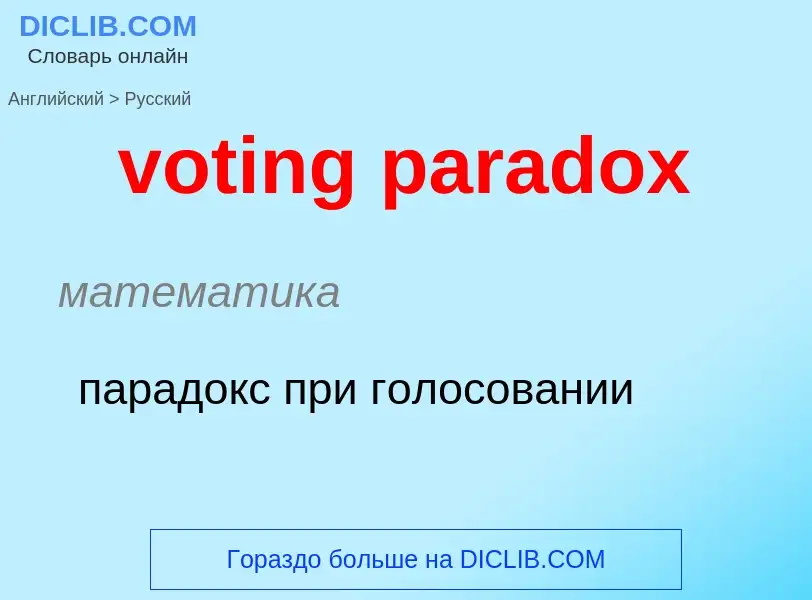ترجمة وتحليل الكلمات عن طريق الذكاء الاصطناعي ChatGPT
في هذه الصفحة يمكنك الحصول على تحليل مفصل لكلمة أو عبارة باستخدام أفضل تقنيات الذكاء الاصطناعي المتوفرة اليوم:
- كيف يتم استخدام الكلمة في اللغة
- تردد الكلمة
- ما إذا كانت الكلمة تستخدم في كثير من الأحيان في اللغة المنطوقة أو المكتوبة
- خيارات الترجمة إلى الروسية أو الإسبانية، على التوالي
- أمثلة على استخدام الكلمة (عدة عبارات مع الترجمة)
- أصل الكلمة
voting paradox - ترجمة إلى الروسية
математика
парадокс при голосовании
تعريف
ويكيبيديا
The Condorcet paradox (also known as the voting paradox or the paradox of voting) in social choice theory is a situation noted by the Marquis de Condorcet in the late 18th century, in which collective preferences can be cyclic, even if the preferences of individual voters are not cyclic. This is paradoxical, because it means that majority wishes can be in conflict with each other: Suppose majorities prefer, for example, candidate A over B, B over C, and yet C over A. When this occurs, it is because the conflicting majorities are each made up of different groups of individuals.
Thus an expectation that transitivity on the part of all individuals' preferences should result in transitivity of societal preferences is an example of a fallacy of composition.
The paradox was independently discovered by Lewis Carroll and Edward J. Nanson, but its significance was not recognized until popularized by Duncan Black in the 1940s.





